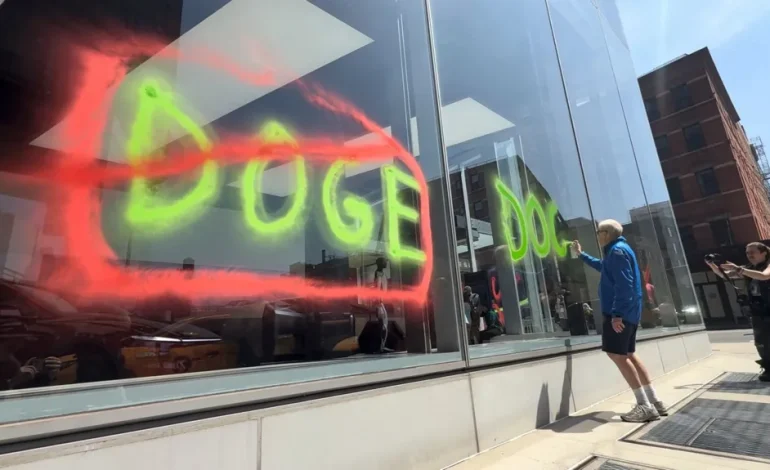Elon Musk, once heralded as a bold political outsider with a mission to revolutionize government efficiency, is stepping back from his prominent role in the Department of Government Efficiency (DOGE).
His departure follows months of political upheaval, public backlash, and declining fortunes across his business empire — especially at Tesla.
Initially welcomed into Washington with bipartisan support, Musk brought Silicon Valley swagger and ambitious goals, including a widely publicized pledge to slash $2 trillion from the federal debt. Though he framed DOGE as a patriotic and existential project, the reality has been more turbulent. Instead of streamlining government operations, Musk’s tenure has left behind a legacy of disruption, controversy, and financial strain.
Despite early enthusiasm, Musk’s initiatives often sparked fierce debate. Under DOGE, several federal agencies experienced sharp cuts, including USAID and the Consumer Financial Protection Bureau. Musk’s team moved aggressively to identify and publicize examples of government inefficiency, but critics argue the efforts were marred by inflated savings claims, flawed data, and legal challenges. Official estimates suggest the verified cost savings from DOGE amount to less than 0.1% of total federal spending.
The backlash wasn’t limited to Washington. Musk’s political involvement and his association with President Trump led to widespread protests and boycotts targeting Tesla. The company reported a 71% drop in net income in the first quarter of 2025, a stark contrast to its past financial success. This downturn prompted Musk to announce a reduced role in DOGE and a renewed focus on Tesla’s recovery.
Public opinion has also shifted. Once viewed as a maverick reformer, Musk now faces criticism from across the political spectrum. His favorability ratings have fallen, and his efforts in state-level politics — such as a $25 million push in Wisconsin’s Supreme Court race — were met with resistance and ultimately unsuccessful.
Inside the federal government, DOGE has had a lasting impact. Supporters credit the initiative with eliminating wasteful spending and trimming bureaucracy. Yet, concerns remain over the long-term consequences, especially as cuts to agencies like the IRS could reduce tax enforcement and potentially undermine the very deficit reduction goals DOGE aimed to achieve.
Ethical questions about Musk’s government role have also surfaced. As a designated “special government employee,” Musk was bound by specific rules regarding financial disclosures, political activity, and conflicts of interest — areas where transparency has reportedly been limited.
While President Trump has continued to defend Musk, praising him as a patriot and visionary, others argue his tenure at DOGE has done more harm than good. Critics point to weakened institutions, diminished public trust, and questionable returns on promised savings.
DOGE is expected to continue operating until July 4, 2026 — the 250th anniversary of the Declaration of Independence — per the executive order that established it. Musk’s future role remains uncertain, though reports suggest about 100 DOGE employees will remain embedded in federal agencies even after his departure.









The latest news in your social feeds
Subscribe to our social media platforms to stay tuned